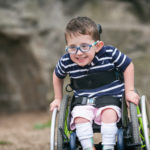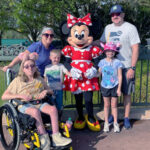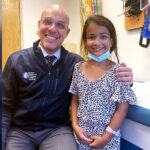Making a change: After a second opinion for spina bifida care, Sydney is thriving
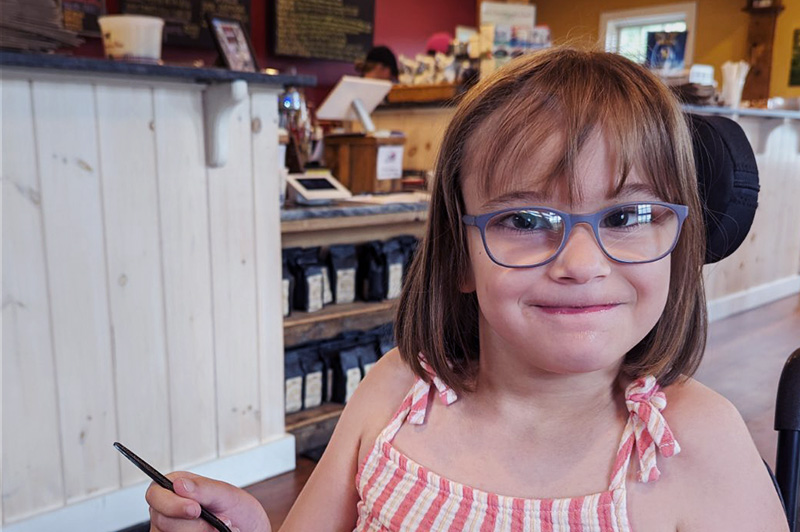
At almost 10 years old, Sydney MacKay is sassy, spunky, and wants to be as independent as possible. Because she was born with spina bifida, part of that desire for independence means being more involved in her own care. Although Sydney underwent a surgical procedure a few years ago aimed at helping foster that independence, it wasn’t until her parents sought a second opinion at Boston Children’s Spina Bifida and Congenital Spinal Anomalies Center that they say she truly began to thrive.
Pushing for the next step in care
Sydney did well with spina bifida for most of her earlier childhood — so well, in fact, that she seemed to “fall off the radar” for the care team at her medical center in New Hampshire, says her mother, Jessica. “We had to do a lot of research and make a lot of calls to get her to the next step in care.”
For Sydney, that next step was addressing continence. As part of her form of spina bifida, Sydney has neurogenic bladder and bowel and can’t fully eliminate without using a catheter or enema. Her parents hoped that a Mitrofanoff appendicovesicostomy and a Malone antegrade continence enema (MACE) procedure would help Sydney become more independent by allowing her to more easily catheterize herself. In early 2021, she underwent the procedures in New Hampshire.
The surgery went well, but it didn’t seem to be the “one and done” treatment Sydney and her parents had hoped for. She struggled to remain continent in social situations, and her doctors prescribed a medication to help address incontinence. Then, her behavioral issues began.
A worrisome change in behavior
Like a lot of kids, Sydney had always had some anxiety around doctors’ visits and medical procedures. But not long after she began taking the incontinence medication — and around the time her younger brother was born — she began acting out.
“Her mood seemed to change for no reason,” explains her father, Michael. “She started hitting, crying, and running into people with her wheelchair.” But when he and Jessica asked Sydney’s care team if her new medication might be to blame, they were told her behaviors were normal and unrelated.
When the family was told that nothing else could be done, they decided to seek a second opinion from Boston Children’s — and ultimately to transfer their care to Boston.
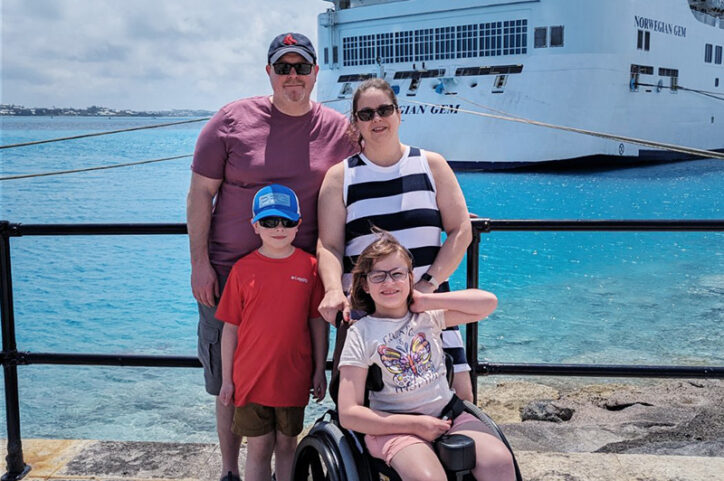
Finding answers
The MacKays say they felt a sense of relief almost as soon as they arrived at the hospital. “We felt so welcomed by the whole team,” says Jessica. Upon meeting with the Center’s director, Dr. Erin McNamara, they learned more about what to realistically expect from the Mitrofanoff procedure that Sydney had undergone. They also discovered that their instincts about Sydney’s behavioral concerns had been right.
“Dr. McNamara explained that there was definitely a connection between Sydney’s behaviors and her incontinence medication,” says Jessica. “It was the first time we felt like someone had really listened to us about it.”
In addition to changing Sydney’s medication, Dr. McNamara walked the family through the next steps with the Mitrofanoff procedure, with the understanding that Sydney might need additional procedures in the future.
“Her answers about the surgery weren’t the ones we wanted,” says Michael. “But they were the right ones.”
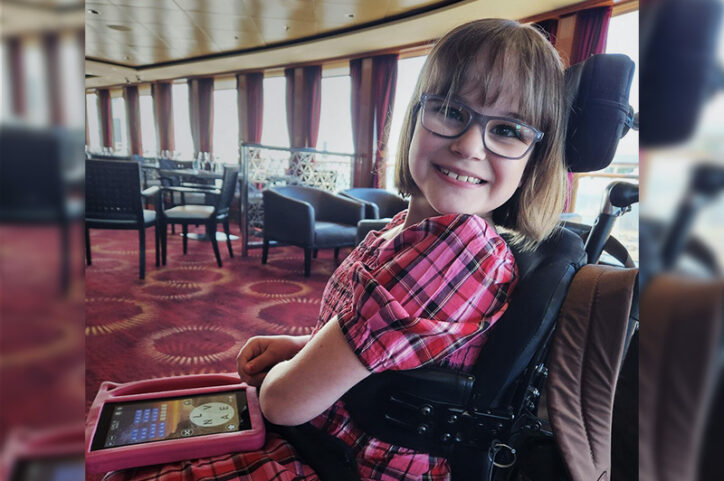
In ‘the right place’
Six months later, Sydney now receives all her spina bifida care at Boston Children’s, including physical therapy, orthopedic surgery, gastroenterology, neurosurgery, and urology. Along with Dr. McNamara, she sees orthopedic surgeon Dr. Craig Birch, who performed life-changing spinal surgery to address severe scoliosis. Neuropsychologist Dr. Jennifer Queally met with the MacKays prior to Sydney’s medication switch and connected them with a therapist.
“She spent 45 minutes explaining how spina bifida can affect brain chemistry and behavior in a way no one else had,” says Jessica.
The changes in Sydney’s care have made a noticeable difference: She’s happier and more relaxed, whether she’s playing with her brother, attending school, or enjoying her favorite food (mac and cheese) at a restaurant. And her medical anxiety has diminished — she’s an active participant in her care and even enjoys seeing her doctors.
Her parents are feeling better, too. “When we weren’t getting what we needed for Sydney, we knew it was time to make a change,” says Michael. “We know that Boston Children’s is the right place for her.”
Learn more about the Spina Bifida and Congenital Spinal Anomalies Center.
Related Posts :
-

Another level of gratitude: Spina bifida care for Liam
Most parents first walk through the doors of Boston Children’s Hospital seeking answers about their child’s health. But ...
-

On her own terms: Robot-assisted procedure gives Sage more independence
At 19, Sage Nault has had multiple surgeries, aimed at addressing challenges related to myelomeningocele, the most severe form of spina ...
-

Lifechanging surgery brings Ann-Raleigh relief from VUR — and some new ‘besties’
When Ann-Raleigh Murthy travels to Boston from her home in Louisiana, she has a list of “must-dos.” Among the highlights: ...
-

The power of a second opinion for Merritt's spina bifida care
In March 2020 — at the height of the COVID-19 lockdown — Jenna, Brian, and their 2-year-old daughter Merritt were practically the only ...


